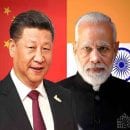HUL looks for alternative supply chain as India-China row hampers trade

Last updated on February 14th, 2023 at 11:37 am
Hindustan Unilever started looking for alternative channels for importing raw materials which it earlier acquired from China. In a quick move to avoid any further damage to the company amid rising anti-China sentiment, HUL chairman, Sanjiv Mehta said, “We do have imports from China worth ₹429 crore, including raw material and part packing material. And we have an absolutely clear strategy, and have started working on what would be the possible alternatives.”
Mehta, in his video message to shareholders on the company’s 87th annual general meeting said,“During the Covid period, we have demonstrated a huge degree of resilience, and moved to alternative sourcing which will help us to mitigate any risk that might arise because of the present geopolitical crisis.” The company’s goods from China form nearly half of the company’s total imports, while its exports to China were relatively insignificant.
“We do have imports from China worth ₹429 crore, including raw material and part packing material. And we have an absolutely clear strategy, and have started working on what would be the possible alternatives.”
India-China row, which got intense with increasing clashes at border, especially with killing of over 20 Indian soldiers on June 15-16 night at Ladakh’s Galwan Valley, sparked #boycottChina calls. The campaign urging Indians to boycott Chinese products and goods as a befitting reply to Indian neighbour in order to hit its economy, had adverse impact on on Indian business and trading community. On Monday, following the rhetoric, Indian government temporarily banned 59 Chinese apps, including popular ones such as TikTok and WeChat, which had huge Indian followers.
As a reaction to #boycottChina calls many started sharing alternatives to those apps on social media forums and promoting other Indian brands, while many questioned the effectiveness of the campaign as cutting ties with Chinese economy, was hampering India industry and market equally bad. Last week, the US-India Business Council (USIBC) highlighted how the move impacted the Make-In-India initiative, India’s economic growth and jobs. The USIBC complained about the sudden increase in custom vigilance, which led to delay in availing imports like pharmaceuticals products, medical devices, electronics, telecommunications equipment and raw materials for goods, and hit country’s own trade and customer demand.
USIBC said in a statement, “We have inquired with Government of India officials about the cause of these delays and shared the negative impact they’re likely to have on economic growth and job creation during this fragile recovery period.”
HUL head also urged the government to helping business in rebuilding economy by preventing the demand from drying up. He said, “It is not easy for the government to have a large demand-led stimulus and it must be concerning the government that if they go down this route, a large part of the stimulus could end up as savings rather than being spent to generate demand.”
Read: India On Its Way To Develop Indigenous Covid-19 Vaccine
Last month, Prime Minister Narendra Modi’s urged the citizens to promote local industry in order to make India self-reliant, as coronavirus pandemic posed huge challenges for global supply chains, leaving huge gaps in the market. Addressing the issue about being ‘vocal about local’, Mehta said, “Ninety-nine percent of the products sold by us in our country are manufactured locally. Now we fully agree with Prime Minister Modi’s thrust on increasing manufacturing locally, and we are now looking at the next step that raw materials which we import, not in massive quantities, but whatever we do, how to help the country become self reliant.”



